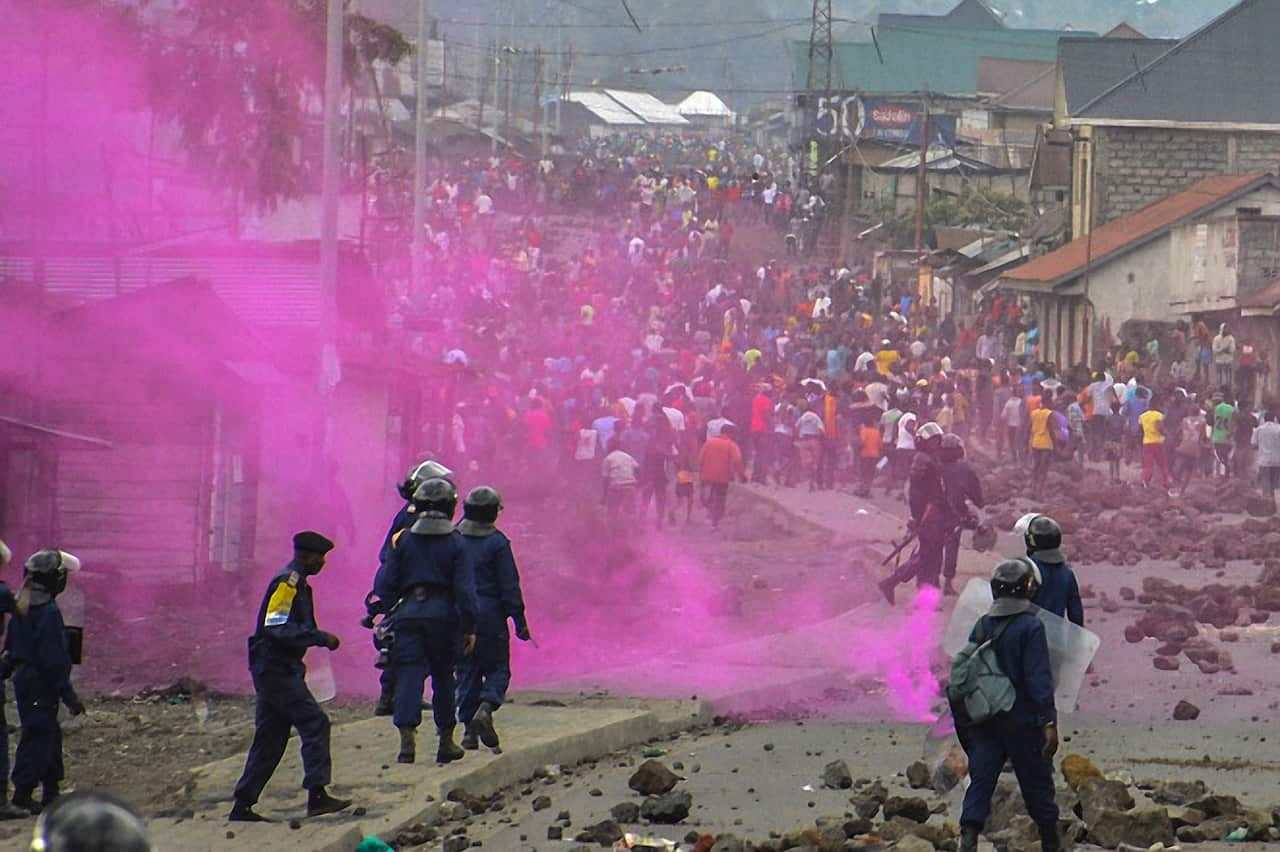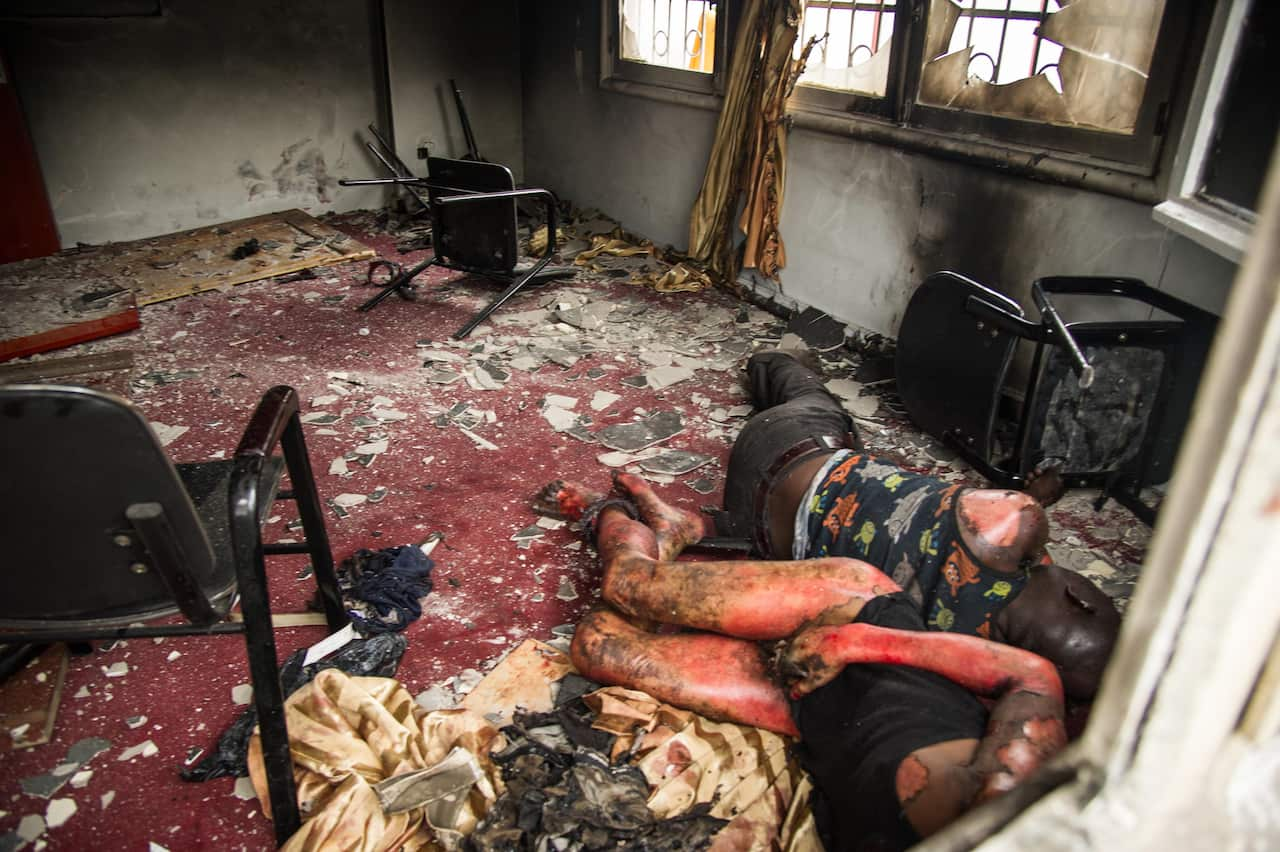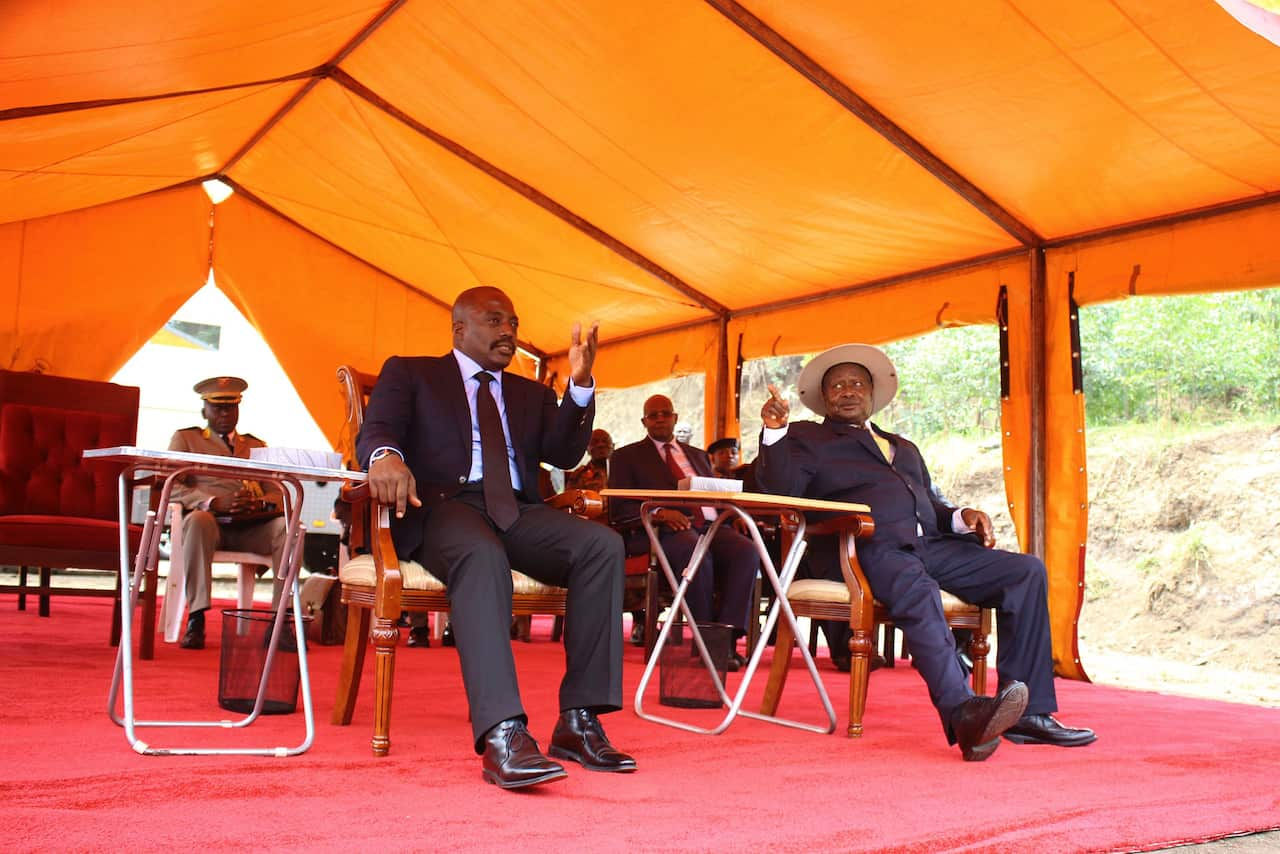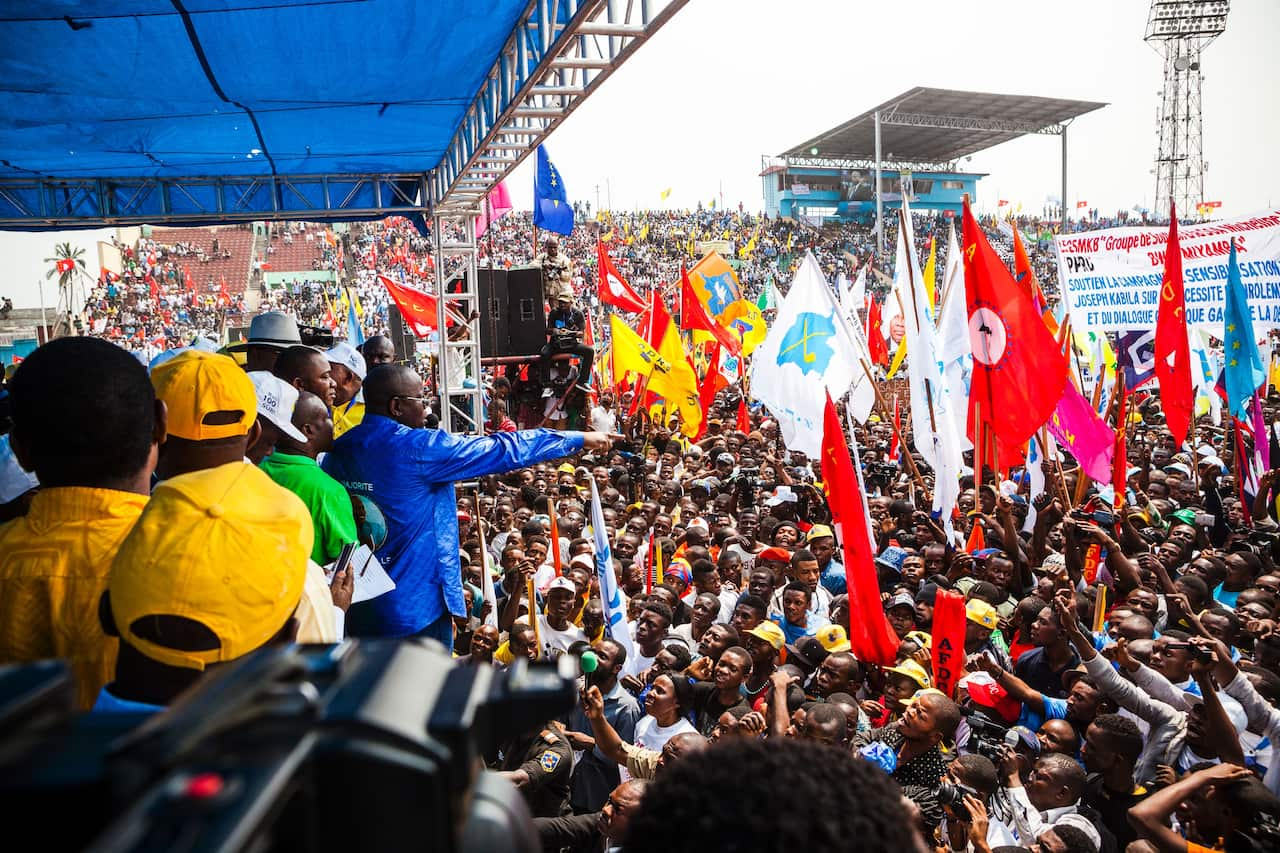The Democratic Republic of Congo is teetering on the brink of a violent constitutional crisis this week as fears mount that the country's president, Joseph Kabila, is seeking to cling to power indefinitely.
Kabila’s constitutionally mandated term limit expires in December, but the government has repeatedly sought to postpone the November elections until mid-2017 at the earliest – the president’s seventeenth year in power.
The delay has unleashed mayhem on the streets. Thousands of protestors clashed with police in the capital of Kinshasa on Monday and Tuesday, leaving 44 dead including six police officers, Human Rights Watch said.
Thousands of protestors clashed with police in the capital of Kinshasa on Monday and Tuesday, leaving 44 dead including six police officers, Human Rights Watch said.

Flares are launched by DRC Police forces during a demonstration in Goma on September 19, 2016. Source: MUSTAFA MULOPWE/AFP/Getty Images
The headquarters of the country’s three main opposition parties have been torched and an opposition leader was detained. At least two people were burned alive in the arson attacks, AFP reported.
The government says a police officer was burned alive by protesters. Protesters claim police fired live ammunition at the crowds.
This week’s surge in violence is the latest flare-up in recent months, with protests spreading to other areas of the central-African country, home to more than 77 million people. Monday’s protests were sparked by an announcement from the country's electoral commission that it would officially delay November’s elections.
Monday’s protests were sparked by an announcement from the country's electoral commission that it would officially delay November’s elections.

Bodies are photographed on September 20, 2016 in the offices of the main opposition Union for Democracy and Social Progress Party which were torched overnight. Source: JUNIOR D.KANNAH/AFP/Getty Images
The commission needed to update electoral rolls, they said, which could be missing millions of eligible voters.
The government has insisted the update to the rolls cannot be undertaken faster due to budget and logistical constraints. Officials say the delay could last over a year.
Few dispute the challenges involved in holding an election with tens of millions of voters in a poorly connected country like the DRC, which is roughly the size of Western Europe.
But opposition groups argue it's an excuse to delay mandated elections.
Opposition parties aren’t the only ones concerned about the government’s motivations. International pressure has been mounting on the Congolese government for months.
This week UN Secretary General Ban Ki-moon made renewed calls for the government to show “maximum restraint” in dealing with protesters.
Diplomats have been urging the government to hold timely, credible elections, while the US applied sanctions to Congolese leaders earlier this year in response to escalating political suppression.
One of President Kabila’s key advisors was in Washington a few days ago to plead against new sanctions. But if the DRC’s neighbours are anything to go by, the international pressure may come to nothing.
But if the DRC’s neighbours are anything to go by, the international pressure may come to nothing.

Democratic Republic of Congo President Joseph Kabila (L) sits with Ugandan President Yoveri Museveny. Source: KUDRA MALIRO/AFP/Getty Images
Leaders in neighbouring Uganda, Rwanda and the Republic of the Congo have all evaded term limits to set themselves up for a lifetime in power.
The UN has reported the Burundi government used torture, mass executions, rapes and arrests to destroy opposition to another government term.
A former rebel commander, President Kabila came to power in 2001 following the assassination of his father, President Laurent-Désiré Kabila.
Details of the assassination are disputed, but some reports claim he was shot by a teenage bodyguard.
After winning UN-backed elections in 2006, President Kabila was returned to power after disputed elections in 2011.
The renewed surge in violence this year risks ending over a decade of relative calm and economic growth.
From 1996 to 2003, seven years of war ravaged the country and killed millions of people. “The decisions President Kabila and his government will make in the coming weeks can make all the difference for Congo’s future,” said Daniel Bekele, Africa director at Human Rights Watch said.
“The decisions President Kabila and his government will make in the coming weeks can make all the difference for Congo’s future,” said Daniel Bekele, Africa director at Human Rights Watch said.

President of the National Assembly Aubin Minaku speaks during a rally in support of Congolese President Joseph Kabila in Kinshasa, on July 29, 2016. Source: EDUARDO SOTERAS/AFP/Getty Images
“This is a critical opportunity for the country to strengthen democracy, the rule of law and human rights for its own future and for the entire region,” he said.
Joseph Kabila’s constitutionally mandated two-term limit ends on December 19, 2016.
Tune in to #TheFeedSBS at 7.30pm Monday - Friday on SBS 2, stream live, or follow us on Facebook, Twitter, Instagram, Tumblr, or Vine.
Share
Through award winning storytelling, The Feed continues to break new ground with its compelling mix of current affairs, comedy, profiles and investigations. See Different. Know Better. Laugh Harder. Read more about The Feed
Have a story or comment? Contact Us







